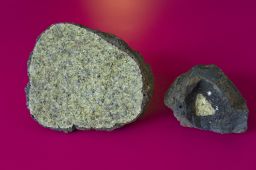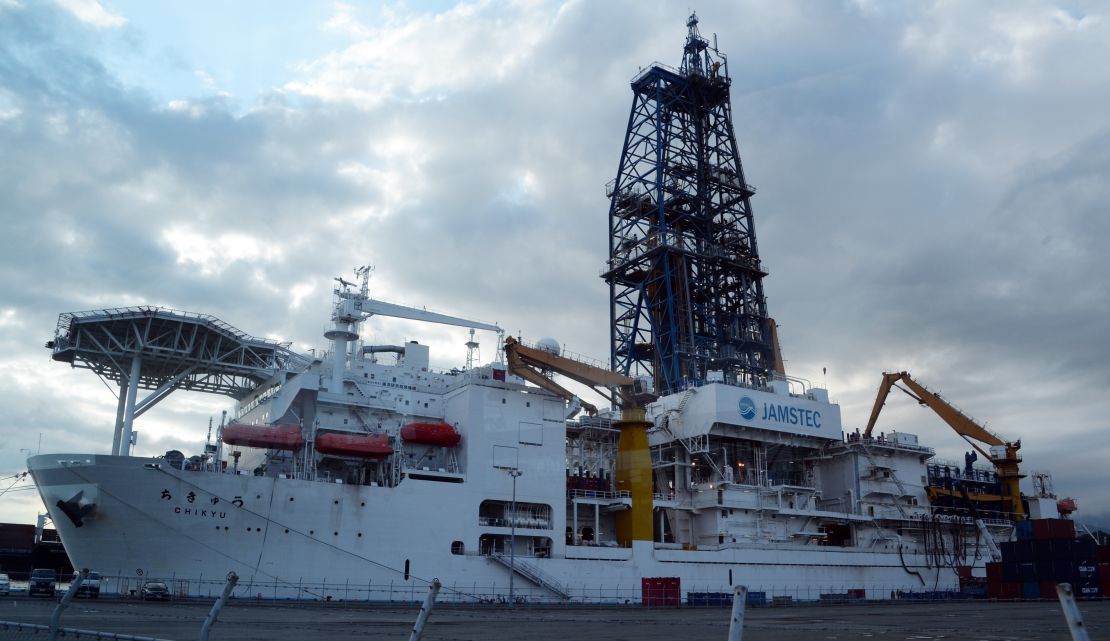Editor’s Note: This piece has been updated to reflect that an international team is involved in the drilling attempt.
Story highlights
Scientists say they still need to do further research before drilling can begin
But they're hopeful they can begin drilling by 2030
Humans have been to the moon and explored almost every corner of the planet – but there’s one place they have never been.
An international group of scientists say they plan to be the first group to drill successfully into the Earth’s mantle, the planet’s interior, which lies just beneath the outer crust.
Researchers at Japan’s Agency for Marine-Earth Science and Technology told CNN they are hoping to discover more about how our planet was formed and what the mantle is composed of. Japanese media first reported on the project last week.
The mantle makes up more than 80% of the Earth’s mass, lying 6 miles (10 kilometers) beneath the ocean floor.

“We don’t know the exact (composition) of the mantle yet. We have only seen some mantle materials – the rock is very beautiful, it’s kind of a yellowish green,” said researcher Natsue Abe, who works for Japan’s agency.
The Japanese government, which is helping fund the expedition, hopes the research could help discover ways to better predict earthquakes, Abe said.
“In Japan we have some volcanoes, earthquakes and such kind of natural hazards. People (want to create) some monitoring or analysis equipment, but we don’t know … what kind of factor to use,” Abe said.
“So we need to know the natural system more clearly or precisely. … We have to observe the Earth more precisely.”
3 drilling sites considered
Three drilling sites are under consideration, Abe said, all of them in the Pacific Ocean.
“One is off Hawaii – we’re going to survey there – another one is off Costa Rica, (and) the last one is off Mexico,” she said.
To access the mantle, the agency wants to use one of the most advanced drilling vessels currently available, the Chikyu.
“It’s the biggest drilling ship of our science area, so the drilling capability is three times longer, or deeper, than the previous (vessels),” Abe said.

The researcher said the Chikyu’s drill will drop down through almost 2.5 miles (4 kilometers) of ocean before reaching the ocean floor.
It then will bore through 3.7 miles (6 kilometers) of the seafloor, or the planet’s crust, before it reaches the mantle.
“We already drilled and have taken some samples from the ocean floor but (only) from the top,” Abe said. “(We want) to dig from the ocean floor to the deep pristine mantle.”
Drilling will start by 2030 at the latest, according to Abe.
4 objectives
The project has four primary objectives, only the first of which is to access the planet’s mantle by drilling through the seafloor.
“The second aim is we want to investigate the boundary between the oceanic crust and the mantle,” Abe said. “The third one is we want to know how the oceanic crust formed.”
The final objective is to examine how deep microbial life exists inside the planet. “(What is) the limit of the life inside the Earth?” Abe said.
Before any drilling can begin, there’s more research that needs to be done to build the right technology, Abe said, but she was convinced the project was feasible.
“If we dig into the mantle, we will know the whole Earth history, that’s our motivation to search,” she said.
